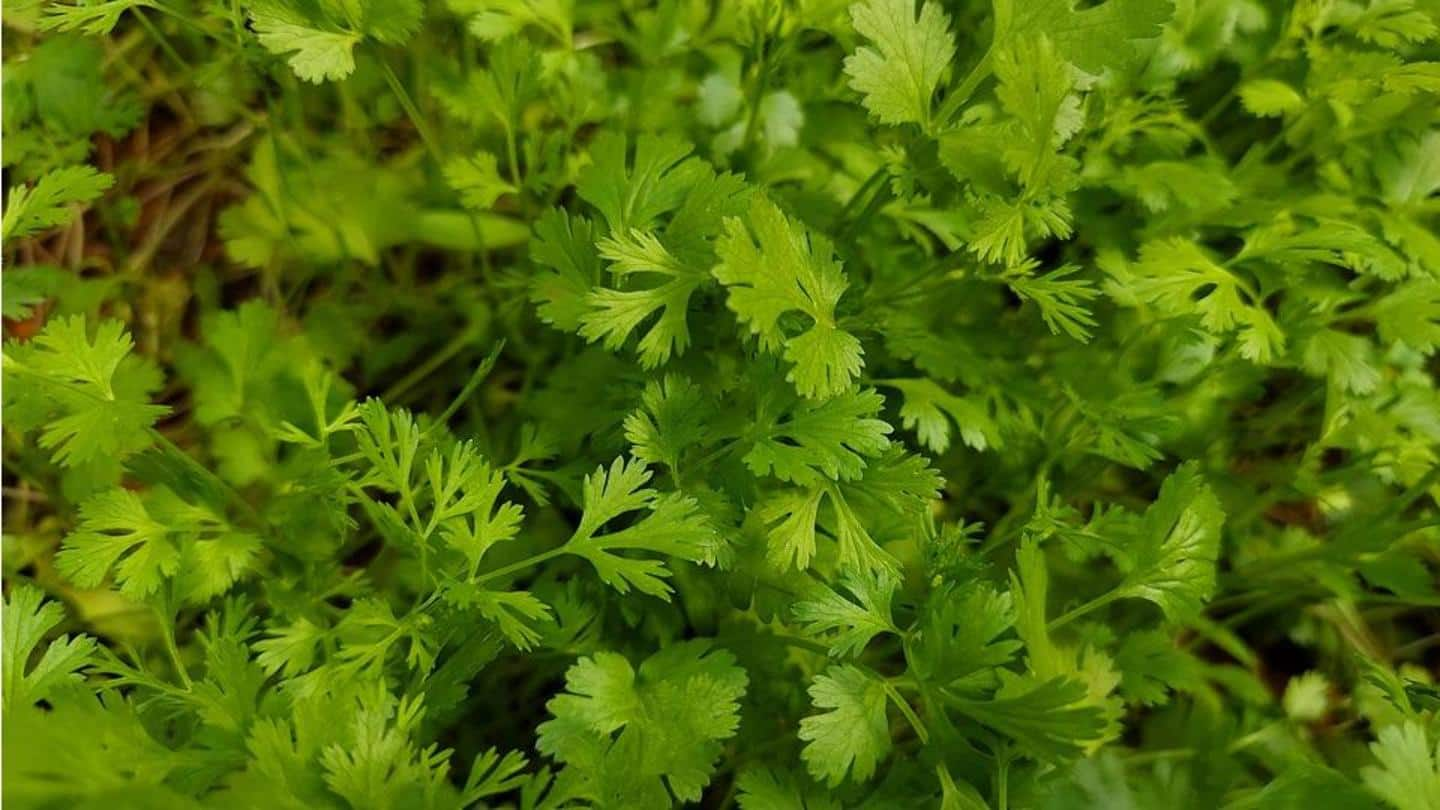
5 herbs you can easily grow in your balcony
What's the story
As India's urban landscape is growing incessantly, more and more people are shifting to apartments or small accommodations.
Earlier, people used to have home gardens or backyards where they had the space to plant herbs or vegetables.
But that is no longer possible for most of us.
Here's a list of some herbs you could grow in pots easily at home.
#1
Tulsi
The medicinal properties of Tulsi are so widespread that almost every Indian family knows how to use it.
Tulsi requires well-drained soil with some organic manure.
The plant needs watering every day in summer and on alternate days in winter.
It is advisable to keep removing new flowering heads and delay flowering as much as possible to keep your plant green, leafy & bushy.
#2
Mint
Mint plants prefer part shade, though they will grow in full sun if you water them frequently.
Although mint can survive in fairly shady conditions, it might not produce as many flavorful leaves.
It prefers rich soil with a slightly acidic to neutral pH. Good soil drainage also is essential.
Maintaining lightly moist but not soggy soil is ideal for mint.
#3
Coriander
Coriander is relatively trouble-free to grow as it doesn't need additional nutrients. Good soil drainage is essential to ensure healthy root health as coriander has deep taproots.
Coriander prefers cool weather and can be grown in partial sun.
The key to growing healthy coriander herb is regular and steady watering.
For a steady supply, plant small patches every 2-3 weeks throughout the growing season.
#4
Turmeric
Due to excessive commercialization, most turmeric products are adulterated which is why it is good to grow your own.
Turmeric grows from rhizomes and requires a warm and humid climate to perform well.
Loamy soil that is rich in the organic matter--a mix of 70% garden soil and 30% compost--is best for turmeric. Keep the soil moist throughout.
#5
Lemongrass
Lemongrass contains inflammation-fighting compounds, and drinking its tea offers multiple health benefits.
Extensively used in Asian cuisine, it grows well in warm and humid conditions. The plant likes lots of light and moisture.
Lemongrass is also known as a pest repellent. The smell of the plant's oil deters mosquitoes. However, according to the ASPCA, lemongrass is toxic to dogs and cats.